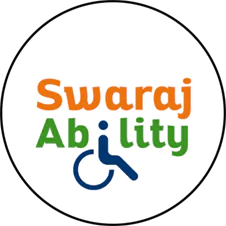Disability hiring FAQs | Reasonable accommodations, Accessibility & more inclusive jobs | Free registration | Join now
Your partner in inclusive hiring:
Our team is here to support you at every step of the process
When should I request a reasonable accommodation?
You may request a reasonable accommodation at any point during your employment once you know
that you need a change in your job due to your disability.
- You do not need to request a reasonable accommodation during a job interview.
- If possible, request a reasonable accommodation before your job performance begins to suffer. It is difficult to ask for an accommodation to address past performance issues.
I don’t know what accommodation to ask for. What should I do?
It is a good idea to identify 1-2 accommodations to ask your employer for. One helpful resource is the Job Accommodation Network (JAN). JAN has fact sheets specific to almost every disability and limitation that includes accommodation ideas. JAN also has technical assistance specialists that can brainstorm solutions with you. Visit https://askjan.org
I need a reasonable accommodation. How do I ask for it?
Your first step is to request the reasonable accommodation.
- Let your supervisor(s) or human resource department know that you need a change at work because of reasons related to your medical condition. You may make this request initially to whomever you are most comfortable with.
- Make your request in writing and use the phrase: “I am requesting a reasonable accommodation under the ADA.” This helps create a clear record of your request and helps your employer know that your request should be taken seriously. If you prefer to have a conversation in person or by phone first, that is perfectly fine. Just be sure to follow‐up in writing confirming the conversation.
What happens after I make my request?
You and your employer should engage in the interactive process to determine what accommodation(s) would be effective to address your needs. If your employer does not immediately approve your request, you can expect the following:
- Your employer may request limited medical documentation.
- Your employer may ask clarification questions about your disability, functional limitations, and needs to help identify an effective accommodation.
- Your employer may want to consult with others knowledgeable about your position.
Does my employer have the right to ask for medical documentation?
Yes, if your disability and/or need for accommodation is not obvious, your employer can request medical documentation to confirm that you have a disability and that you need a reasonable accommodation.
- Your employer should not ask for a complete medical history. Requests should be narrowly tailored to your accommodation request.
- If your employer asks you to sign a release for all of your medical records, offer to provide a note from your doctor instead and/or narrow the scope of the release to information required to assess your accommodation request.
- Some employees find it helpful to provide documentation from a doctor with the initial request. There is nothing wrong with this, but your employer may have specific questions, so you may want to consider waiting to provide medical documentation so that you do not need to ask your doctor for additional letters.
Do I have to respond to my employer’s follow up questions?
Yes, so long as they are reasonable.
- The interactive process is a “two‐way street” and places obligations on you as well as your employer. You might feel frustrated and not want to continue this discussion, but we encourage you to respond to all reasonable questions and requests. You want to do everything reasonable to continue to engage in the interactive process.
- Remember that the ADA encourages us to be creative, open‐minded, and flexible. You are asking your employer to be all of those things when making changes to your job. Try to work with your employer to find a mutually agreeable solution.


